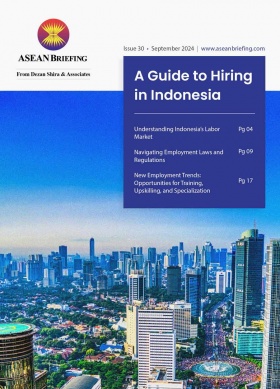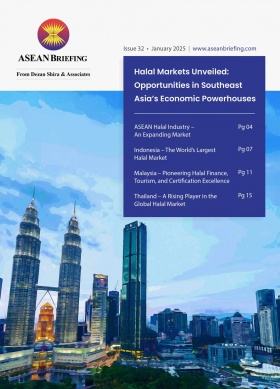Business Visas in Vietnam: A Guide for Foreign Investors
Vietnam has emerged as a key destination for foreign investment, offering a dynamic market, a growing consumer base, and a strategic location in Southeast Asia. As foreign businesses establish operations in the country, understanding the complexities of Vietnam’s visa regulations is essential to ensure compliance and smooth business activities.
The right visa choice can significantly influence business operations, from short-term visits to long-term investments.
Visa options for business and investment purposes
Vietnam provides various visa options catering to different business and investment needs. Each visa type comes with specific requirements, permitted activities, and renewal procedures. Understanding these differences helps in selecting the most suitable visa for business operations.
Business visa (DN visa)
The DN visa is commonly used by foreign nationals entering Vietnam for business-related activities. This visa is available in both single-entry and multiple-entry formats, with durations ranging from one month to a year. Unlike work permits, DN visas do not authorize employment but allow participation in business meetings, contract negotiations, and market research.
Sponsorship by a registered Vietnamese company is required for a DN visa. The application process involves submitting an invitation letter from the sponsoring company, along with necessary documentation, to a Vietnamese embassy or consulate abroad. Those seeking convenience can also apply for a visa on arrival, provided they have a pre-approved invitation letter.
Investor visa (ĐT visa) and investment requirements
For foreign investors, the ĐT visa is a preferred option. It is designed for individuals investing in Vietnamese businesses and is categorized based on investment value. The higher the investment amount, the longer the visa duration, with some categories allowing up to ten years of stay.
ĐT visa categories and investment requirements
- ĐT1 visa: Requires an investment of at least VND 100 billion (US$4.3 million) or investment in prioritized industries or areas. The visa duration is up to 5 years, and holders can apply for a Temporary Residence Card (TRC) valid for up to 10 years.
- ĐT2 visa: Requires an investment between VND 50 billion and VND 100 billion (US$2.15 million to US$4.3 million) or investment in encouraged sectors. The visa duration is up to 5 years, with a TRC valid for up to 5 years.
- ĐT3 visa: Requires an investment between VND 3 billion and VND 50 billion US$130,000 to US$2.15 million). The visa duration is up to 3 years, with a TRC valid for up to 3 years.
- ĐT4 Visa: For investments of less than VND 3 billion US$130,000. The visa duration is up to 1 year, but it does not qualify for a TRC.
Work permits and temporary residence cards
Business visas are different from work permits, which are necessary for foreigners seeking employment in Vietnam. Work permits require employer sponsorship and are issued based on qualifications, job positions, and compliance with Vietnamese labor laws.
Certain professionals, such as intra-company transferees or experts in specialized fields, may qualify for work permit exemptions. Those holding work permits for extended periods can apply for a Temporary Residence Card, allowing longer stays and multiple entries into Vietnam.
TRCs also extend benefits to family members, providing a stable residency solution for expatriates.
Visa application process and challenges
Obtaining a business visa for Vietnam involves different procedures, depending on where the application is submitted. Common methods include applying through Vietnamese embassies or consulates, using the visa-on-arrival process (for eligible travelers), and utilizing the e-visa system.
APEC Business Travel Card: A convenient alternative
For business executives frequently traveling across Asia-Pacific, the APEC Business Travel Card (ABTC) offers a streamlined solution. This card grants visa-free entry to Vietnam and other participating APEC economies, eliminating the need for separate visa applications each time a business trip is required.
The ABTC is particularly beneficial for those engaged in regional trade, investment, or corporate expansion. However, applicants must meet eligibility criteria, including holding a valid passport from an APEC member economy and being endorsed by their home country’s business authority.
One of the main advantages of the ABTC is its five-year validity period, which allows multiple short-term stays in Vietnam and other participating countries. This reduces administrative burdens for frequent travelers. However, it does not replace work permits or long-term residency visas.
Permitted business activities and restrictions
Different visa types dictate the scope of activities a foreigner can engage in while in Vietnam. Business visas allow participation in corporate meetings, market research, negotiations, and contract execution. However, employment, direct management, and certain business operations may require additional permits.
Foreign investors with ĐT visas have broader flexibility, enabling them to participate in company management, investment expansion, and strategic planning. Compliance with local regulations is essential to avoid potential legal issues.
Compliance risks and common pitfalls
Foreign business visitors must adhere to Vietnam’s visa regulations to avoid penalties. Overstaying a visa can result in fines, deportation, or future entry bans. Engaging in work without the appropriate permits is another common violation, leading to legal consequences for both the foreigner and the sponsoring entity.
Another critical consideration is the tax implications associated with visa status. Prolonged stays or direct involvement in business operations may trigger tax residency status, affecting personal income tax obligations. According to Vietnamese tax regulations, individuals staying in the country for 183 days or more within 12 months may be considered tax residents and subject to worldwide income tax. Non-tax residents are only taxed on Vietnam-sourced income, but tax obligations can still be significant.
Industry-specific considerations for foreign investors
Different industries may face unique visa challenges based on business structures and regulatory requirements.
- Manufacturing enterprises may need investor visas for foreign stakeholders and work permits for technical experts.
- Service businesses require careful visa planning for foreign consultants and management teams.
- Representative offices face specific visa and licensing requirements, as they cannot directly conduct commercial activities.
- Technology companies may benefit from work permit exemptions for highly skilled professionals.
- Import/export businesses must align visa planning with customs and trade regulations to avoid operational disruptions.
About Us
ASEAN Briefing is one of five regional publications under the Asia Briefing brand. It is supported by Dezan Shira & Associates, a pan-Asia, multi-disciplinary professional services firm that assists foreign investors throughout Asia, including through offices in Jakarta, Indonesia; Singapore; Hanoi, Ho Chi Minh City, and Da Nang in Vietnam; besides our practices in China, Hong Kong SAR, India, Italy, Germany, and USA. We also have partner firms in Malaysia, Bangladesh, the Philippines, Thailand, and Australia.
Please contact us at asean@dezshira.com or visit our website at www.dezshira.com and for a complimentary subscription to ASEAN Briefing’s content products, please click here.







